Biologists, governor visit bear den in Pelham
| Published: 03-24-2024 2:15 PM |
State biologists took the governor for a visit to a black bear den in Pelham earlier this month that is part of ongoing statewide research throughout the state.
Each winter, biologists from the Massachusetts Department of Fish & Game Division of Fisheries and Wildlife (MassWildlife) visit the dens of female black bears, called sows, with radio tracking collars to assess the health and number of new cubs. The study provides critical information about the growing bear population in Massachusetts.
The biologists this year escorted Gov. Maura Healey and several other officials on the visit, where they were able to get an up-close look at a sow and her three cubs located at the den after trained staff immobilized the adult animal.
“We had a great time learning from our wildlife experts and getting to know our bear neighbors,” Healey said in a statement. “Massachusetts is home to an impressive variety of habitats and wildlife. We are committed to using the best possible science to conserve biodiversity in Massachusetts. This black bear research is a great example of how we are making that happen.”
While at the den, biologists checked the health of the cubs and mother and replaced the sow’s GPS tracking collar. Signals from the collar are used throughout the year to see whether bears are using natural areas or developed, residential areas.
After all the data was collected from the sow and cubs, biologists carefully returned the bears to their den and left the area. Many black bears are becoming more active during this time of year, but sows with cubs remain in their dens for several more weeks.
Joining Healey on Monday were Rebecca Tepper, secretary of Energy and Environmental Affairs; Tom O’Shea, commissioner of the Department of Fish & Game; Mark Tisa, MassWildlife director; and first partner Joanna Lydgate.
Tepper said MassWildlife’s black bear research program is the longest-running of its kind in New England.
Article continues after...
Yesterday's Most Read Articles
 Granby Bow and Gun Club says stray bullets that hit homes in Belchertown did not come from its range
Granby Bow and Gun Club says stray bullets that hit homes in Belchertown did not come from its range
 Super defers Amherst middle school principal pick to successor; one finalist says decision is retaliation for lawsuit
Super defers Amherst middle school principal pick to successor; one finalist says decision is retaliation for lawsuit
 ‘Home away from home’: North Amherst Library officially dedicated, as anonymous donor of $1.7M revealed
‘Home away from home’: North Amherst Library officially dedicated, as anonymous donor of $1.7M revealed
 Political newcomer defeats Shores Ness for Deerfield Selectboard seat
Political newcomer defeats Shores Ness for Deerfield Selectboard seat
 A DIY approach to flying: Local pilots build and help build their own aircraft
A DIY approach to flying: Local pilots build and help build their own aircraft
 Back to the screen: Amherst authors’ popular ‘Spiderwick Chronicles’ gets a new streaming adaptation
Back to the screen: Amherst authors’ popular ‘Spiderwick Chronicles’ gets a new streaming adaptation
“The goal is to understand bear behavior, population size, and movements across Massachusetts,” Tepper said.
O’Shea said that despite Massachusetts being the third most densely populated state in the country, black bear populations are thriving and have expanded their range as far east as the Interstate 495 corridor.
Collecting this vital data helps MassWildlife understand populations, educate the public, and minimize conflicts with these important creatures, he said.
MassWildlife’s Black Bear Project Leader Dave Wattles said, “Our goal is to keep these impressive animals wild by understanding their movements and by encouraging people to take actions like removing bird feeders and securing trash in their yards.”

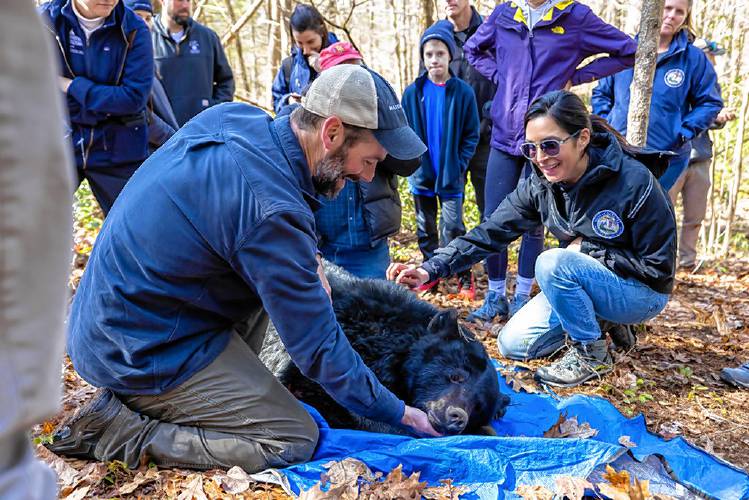
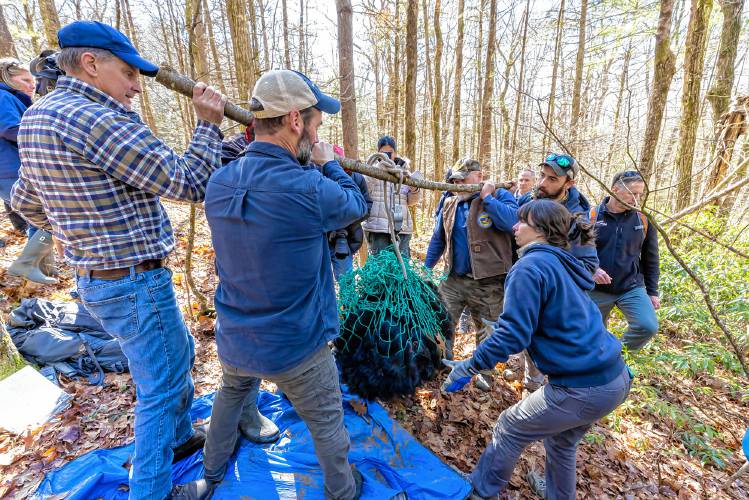
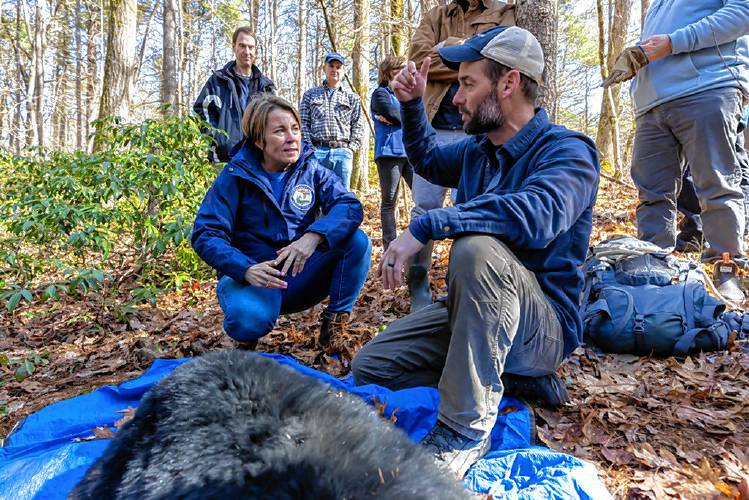
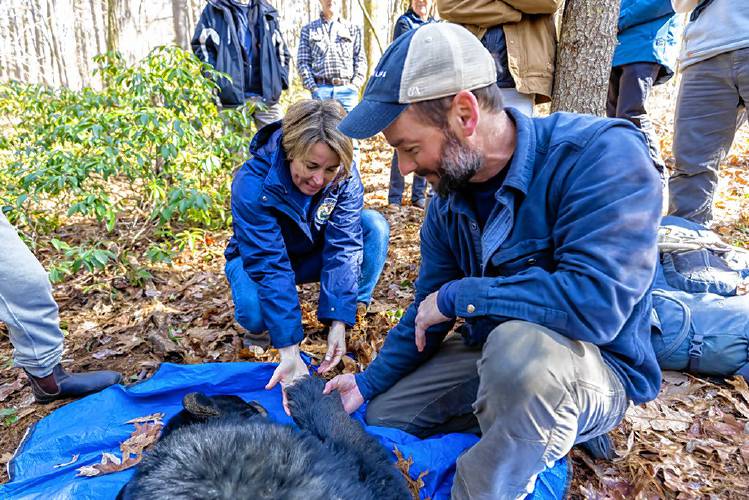
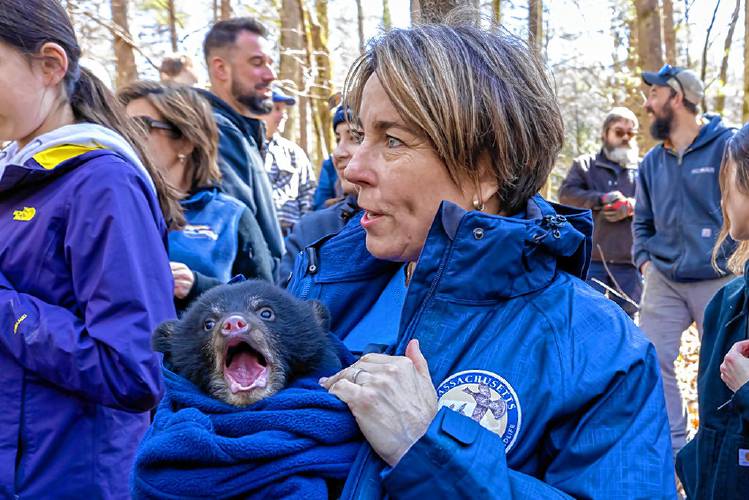
 Sharing a few notes: High schoolers coaching younger string players one on one
Sharing a few notes: High schoolers coaching younger string players one on one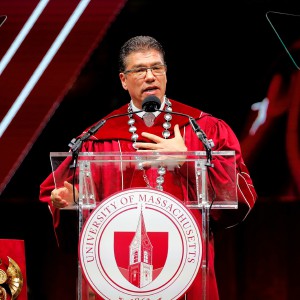 Reyes takes helm of UMass flagship amid pro-Palestinian protests
Reyes takes helm of UMass flagship amid pro-Palestinian protests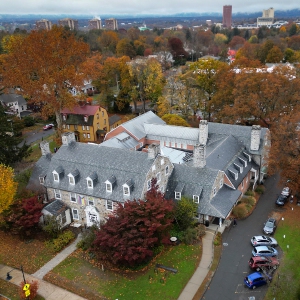 Sole over-budget bid could doom Jones Library expansion project
Sole over-budget bid could doom Jones Library expansion project Amherst poised to hire police department veteran as new chief
Amherst poised to hire police department veteran as new chief 